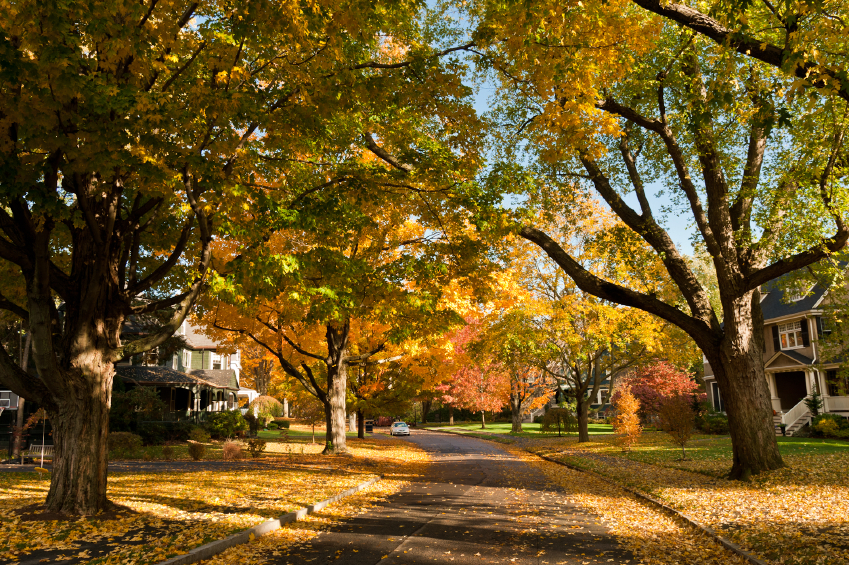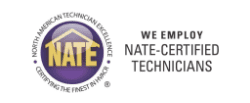7 Ways to Prepare Your Plumbing for Fall & Winter

Fall and winter, particularly on the North Shore, take a toll on nearly everything, especially our homes. And your plumbing is no exception. Unchecked plumbing issues can be most devastating during the winter if that's when they happen to strike.
According to the Insurance Information Institute, water damage and freezing consistently rank as a top cause for insurance claims. Not only is it one of the most common claims, but it's also the most costly. Yikes! Fortunately, you can avoid becoming one of the statistics by doing a few things to safeguard your plumbing from the cold season.
Early fall is the best time to begin seasonal maintenance on your plumbing, giving you ample time to check everything and take care of any issues. The first hard frost could sneak up on you, and that's enough chill to damage an outdoor faucet that still has water in it.
Thus, as we approach the fall season, we've put together seven things you can do to prepare your plumbing. Do one each day, and within a week, you'll be a proud homeowner, ready to hunker down and enjoy all the food, fun, and family time that come with fall and winter.
1. Close Your Outdoor Plumbing
Your outdoor fixtures are most susceptible to freezing, so you need to prepare them for the winter properly. Detach, drain, and put away all garden hoses. Close the shut-off valve on the pipes that lead to your outdoor spigots, then drain any remaining water from them. Cover them with insulated tape or winter cover. If you have a sprinkler system, shut off and drain the valves. Lastly, mainly for safety, ensure it's adequately covered if you have a pool or hot tub. For a swimming pool, be sure to drain and winterize your plumbing correctly. Your swimming pool professional should help you with this.
2. Insulate Exposed Pipes
Frozen interior pipes are disastrous, but we don't want to scare you so much that you hastily insulate all your pipes. Instead, insulate pipes most prone to freezing, like those in crawl spaces, near outside walls, or in the garage. Wrap them with foam pipe covers, which can be easily purchased at your local home improvement store. Pipes behind walls or safely running through cabinets are likely safe from freezing.
3. Check for Leaks
Check for leaks around your plumbing. These can be spotted by damp spots on the floor, walls, ceilings, inside cabinets. Sometimes checking for leaks can be difficult, so if you're unsure in any way of whether you have a leak or if you don't know what to look for, hire a professional to do leak detection for you.
4. Check Your Fixtures
Part of checking for leaks entails checking your faucets and showerheads, also known as plumbing fixtures. Turn on the water and observe. Look for odd changes in water pressure, leaking, dripping, or pooling of water around connection points or in areas that shouldn't have water trickling around them. Also, check for any cracks, dents, or excess corrosion. Again, it can be challenging to know what's problematic and what isn't, or if small leaks are a big deal (hint: they probably are), so have a professional inspect your fixtures when in doubt.
5. Clean Your Drains
Are your sinks and showers a bit smelly? Does water run down the drain a bit slower than usual? These are signs you need to clean your drains. Drain cleaning should be part of your regular home maintenance routine but should primarily be done before the fall, preparing for busy holidays and hunkered down homebodies. Unclear drains lead to clogs, leading to leaks or full-on sewage backup (dangerous and unsanitary). While you can do some DIY drain cleaning things, they must be done carefully (avoid the Drano, please!). And if you're noticing any signs of a clogged drain, then schedule a drain cleaning service with a professional right away.
6. Inspect Your Water Heater
No one likes a cold shower, especially during the winter. Water heater maintenance should be done annually, and the early fall is the perfect time to do so. From a DIY standpoint, you'll want to look and listen. Look for any leaks, cracks, dents, or corrosion on and around your water heater. Listen for noticeable crackling and popping noises coming from inside your water heater. If you notice any issues, call a professional.
7. Remember Ongoing Prevention
This isn't a one-day task, per se, but you can mentally prepare and set reminders of these important actions to help you take care of your plumbing all winter long:
Watch what you rinse down the kitchen sink.
Cold weather isn't the only thing taking a toll on your plumbing. Fall and winter are often a time for more cooking, especially larger meals with heavier starches and fats. Excess food down the sink can cause buildup even when ground in the garbage disposal. Fragments still stick to pipes and collect over time. To prevent a clog, consider throwing the following foods and substances in the trash or compost instead of rinsing down the sink:
- Stringy or fibrous foods (corn husks, oranges, green bean shells, etc.)
- Grease, fats, or oils — pour them into a jar, a pie tin, tinfoil, or any other disposable container that can handle the heat and won't leak. Once they solidify, throw them away.
- Eggshells
- Starchy foods that expand when wet (pasta, rice, potatoes, etc.)
- Bones
- Coffee grounds
Prevent frozen pipes.
Like the plague, you want to avoid the dangers of frozen pipes. Checking for leaks and cleaning your drains are the first steps to prevent frozen pipes, but when temperatures drop well below freezing, consider letting water drip from the hot and cold faucets during the night. If you leave town for a while or there's an area of the home you don't often use, keep cabinet doors open to allow warm air to circulate in places like below sinks.
Go downstairs more often.
Lastly, to ensure your plumbing lasts through the winter, keep an extra close eye on it. Sure, it's icky and uncomfortable going into a dark basement or crawl space. Still, regular check-ins on your water heater, sump pump, and exposed piping go a long way in catching issues before they become costly disasters.
Fall is such an exciting time, and it's easy to jump into the fun of pumpkin spice, apple pie, and home-cooked meals. But as you're closing the grill and mowing the grass for the last time, also begin checking on your plumbing. A few small tasks each day result in a safer home during the cold months of fall and winter.
Preventative maintenance is the key to a safe and cost-efficient home! Schedule an appointment with Cranney Home Services. Our experts are the best in the business and will complete a careful inspection of your plumbing. Call 978-750-6900 or book online.
North Shore and
Merrimack Valley Areas include:
Salem | Andover | Danvers | Lynnfield | Melrose and surrounding cities

North Shore and
Merrimack Valley Areas include:
Salem | Andover | Danvers | Lynnfield | Melrose and surrounding cities
















